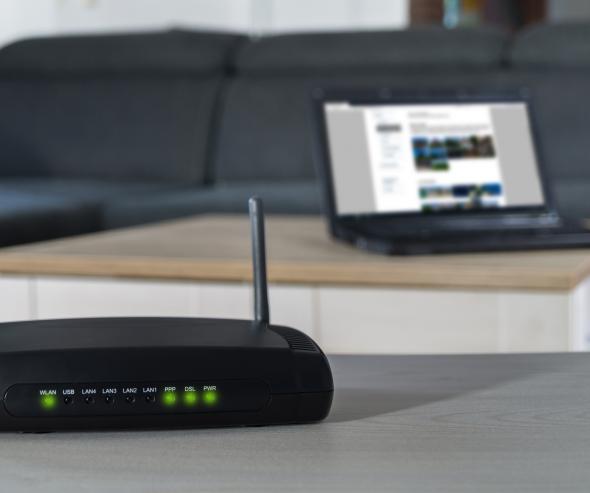28th February 2002 : High-speed Internet access via ADSL : the Conseil de la concurrence orders France Télécom to suspend sales of eXtense packs in its outlets

Following a referral by the company T-Online, an Internet service provider operating under the brand name Club Internet, the Conseil de la concurrence handed down a decision dated 27th February 2002. This ruling imposed interim measures against France Télécom, ordering it to cease behaviour that could give its subsidiary Wanadoo Interactive a crucial advantage over its competitors for the provision of high-speed Internet access via ADSL.
This behaviour consisted of two practices, one concerning the procedure for checking and ordering ADSL lines, the other concerning a partnership offer made by France Télécom.
Concerning the procedure for checking and ordering an ADSL line
Providing a customer with high-speed Internet access via ADSL involves two elements :
- A subscription with an Internet service provider ;
- A fast ADSL connection using the local telephone network.
Given France Télécom's position on the local network and the absence of alternative operators, France Télécom is currently the only firm offering service providers the service they need in order to offer their customers high-speed access via ADSL.
Furthermore, the company Wanadoo Interactive, a subsidiary of France Télécom, is an Internet service provider. It is therefore in competition with other ISPs, and notably Club Internet.
The latter told the Conseil de la concurrence that France Télécom had allegedly given its subsidiary Wanadoo an advantage over the other ISPs, by offering the eXtense pack (access to ADSL technology and Internet subscription) for sale in its commercial outlets.
For Wanadoo Interactive, which has access to France Télécom's network of 750 outlets and their staff, the sale of ADSL Internet subscriptions is easily accomplished. The outlets have the information required to check whether their customers' lines can in fact be technically connected to ADSL. They also have permanent staff to assist customers wishing to obtain information on high-speed Internet access conditions and answer their questions quickly and confidently.
The other ISPs do not have these facilities, and the case file appears to show that France Télécom was slow in improving the reliability of information given to ISPs concerning the eligibility of telephone lines.
This behaviour may have led to situations, in which the process of taking an order for a high-speed Internet subscription is achieved more quickly and more surely for Wanadoo Interactive than for other ISPs. It may also have helped create structural discrimination between the different service providers, for the benefit of Wanadoo Interactive. Allegedly, the latter now holds 90% of the market for household ADSL Internet customers.
Furthermore, the year 2002 will be a crucial one for high-speed Internet access which, due to the facilities and features it offers, is the solution of the future. The expected increase in demand is substantial. At the end of the year 2000 there were 60,000 subscribers, while on 31st December 2001 that figure had risen to 400,000. By the end of 2002, it is estimated that there will be over a million customers. Finally, the company Wanadoo was gaining 15,000 customers per week at the end of 2001, whereas that figure was only 5,000 in September.
The Conseil took the view that it was important for competition based on merit to be built up in this sector. However, there is a risk that France Télécom's practices, which could potentially be qualified as anticompetitive, could lead to the formation of a virtual monopoly for the provision of high-speed Internet access.
Consequently, the Conseil de la concurrence ordered France Télécom to provide all Internet service providers with an Extranet server, giving them access to the same information as that available to Wanadoo Interactive and enabling them to order the physical operation of installing the ADSL connection from France Télécom's specialist services, under the same conditions of efficiency as those granted Wanadoo Interactive.
Whilst awaiting the implementation of this system, which must facilitate mass on-line processing, France Télécom was ordered to suspend sales of Wanadoo Interactive's ADSL packs in its commercial outlets.
Concerning the partnership project between France Télécom and Internet service providers
In addition, France Télécom proposed to enter into partnership with service providers, with the aim of selling an offer consisting of a single-priced pack, allowing the customer to choose his Internet service provider freely. However, under the conditions planned initially, France Télécom forced ISPs to accept a minimum price for providing the service to their customers, and a single level of remuneration for mass distribution brands, thereby impeding the ability of Internet service providers to fix the price of their service freely.
Consequently, the Conseil ordered the company France Télécom to suspend all offers of this kind.
This emergency procedure is not a substitute for a full inquiry into the merits of the case, which will be conducted at a later date and which will culminate in a new decision.

> See decision of the Paris Court of Appeal (9th April 2002)
